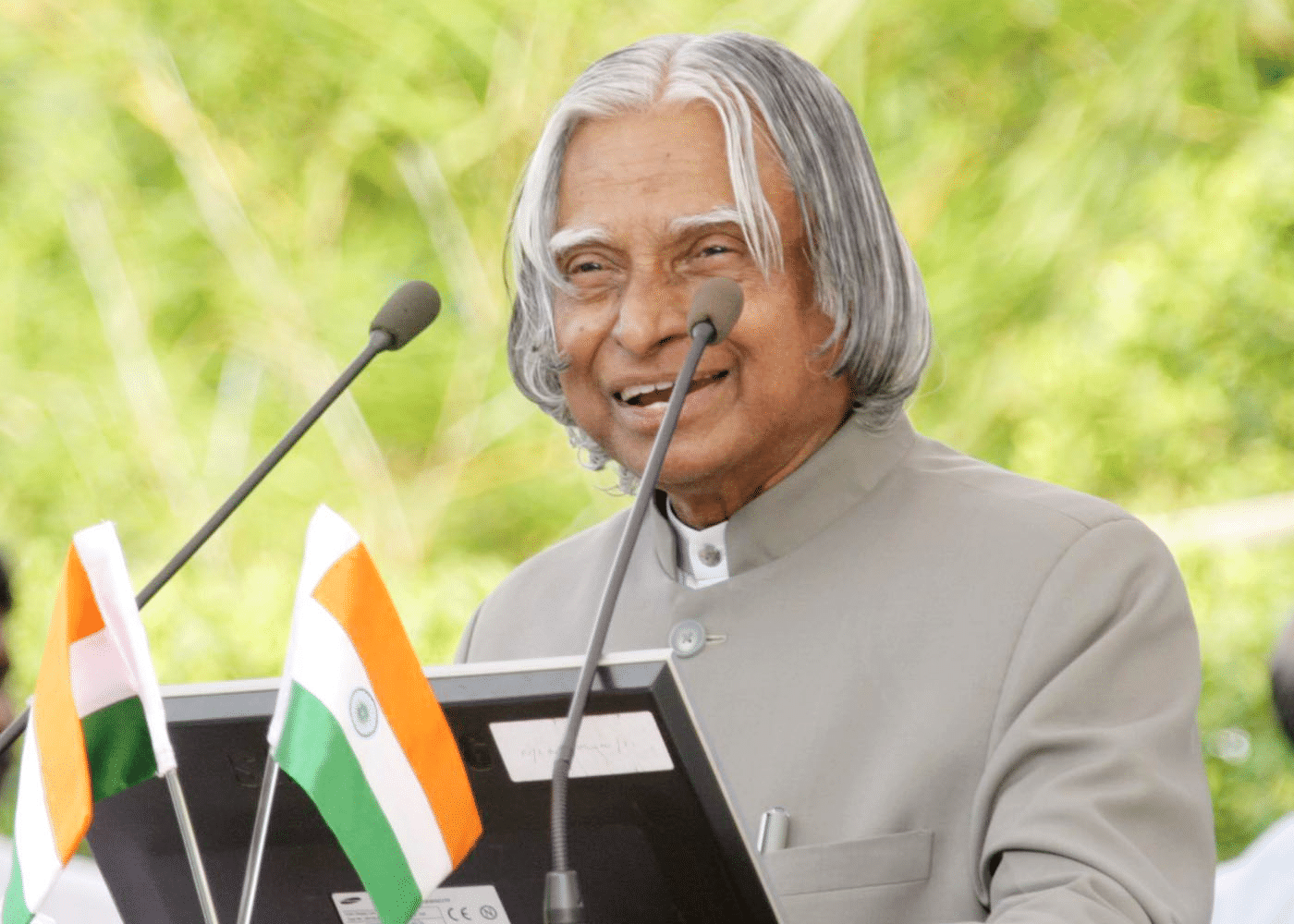Introduction
Abdul Kalam, the revered former President of India, emerged from humble beginnings in Rameshwaram. Born into a middle-class Muslim family, Kalam's upbringing was shaped by the values of generosity, wisdom, and simplicity instilled by his parents. Despite limited means, his parents, neither wealthy nor highly educated, demonstrated remarkable kindness and hospitality, fostering an environment where individuals from all walks of life found a seat at their table. Kalam imbibed essential virtues like honesty and self-discipline from his parents, setting the foundation for his remarkable journey.
 Dr. APJ Abdul Kalam
Dr. APJ Abdul Kalam
Detailed Summary
- Family Values and Generosity: Abdul Kalam, hailing from a middle-class Muslim family in Rameshwaram, was shaped by the values instilled by his wise and generous parents. His father, though simple, ensured that all the necessities for their four children were met, even though the family wasn't affluent. The ancestral house on Mosque Street was a hub of hospitality, with many outsiders sharing meals daily.
- Simplicity and Discipline: Despite their lack of education and wealth, Kalam's parents were known for their generosity and kindness. Kalam imbibed qualities of honesty, self-discipline, and faith in goodness from his upbringing. His childhood was emotionally and materially secure, filled with love and moral guidance.
- Early Entrepreneurial Spirit: At the young age of 8, during the Second World War in 1939, Kalam engaged in collecting and selling tamarind seeds, showcasing his early entrepreneurial spirit. He also helped his cousin, Samsuddin, with newspaper distribution, an experience that filled him with pride as it marked his first earnings.
- Religious Harmony at Home: Kalam's family did not confine themselves to a single religious perspective; they embraced all religions and actively participated in Hindu festivals. The atmosphere at home included storytelling sessions, where his mother and grandmother narrated tales from the Ramayana and the life of the Prophet during bedtime. His childhood friends, Ramanadha Sastry, Aravindan, and Sivaprakasan, represented diverse religious backgrounds. Despite their differences, their friendship never wavered, highlighting the inclusive nature of Kalam’s upbringing.
- Communal Bias at School: Kalam's schooling at Rameshwaram Elementary School revealed an incident of communal bias when a new teacher separated him from his friend Ramanadha Sastry due to their different religious backgrounds. However, this incident was challenged by Ramanadha's father, Pakshi Lakshmana Sastry, who advocated for communal harmony and equality. His strong conviction led to the teacher's reformation, instilling in Kalam a sense of justice and the importance of standing up against social inequality.
- Challenging Religious Bias: Another instance of religious bias arose when Kalam was invited to his science teacher, Sivasubramania Iyer's house for dinner. Iyer’s orthodox Brahmin wife initially refused to serve Kalam due to his religious background. However, Iyer, undeterred by his wife’s objections, served Kalam himself. This persistence eventually led to a change in his wife's attitude, and during the next visit, she personally served Kalam, demonstrating the transformative power of open-mindedness and acceptance.
- Parental Wisdom and Support: After the conclusion of the Second World War, India was on the brink of independence. Amidst this sense of optimism, Kalam expressed his desire to study in Ramanathapuram. His father, understanding the importance of personal growth, supported his decision, quoting Khalil Gibran to his hesitant wife, reminding her that children are independent individuals with their own thoughts and aspirations.
- Influence of Family Values: Kalam’s parents, despite lacking formal education, imbued him with qualities like generosity, honesty, and self-discipline.
- Inclusive Environment: Kalam’s family actively participated in both Islamic and Hindu traditions, creating a diverse and inclusive atmosphere at home.
- Early Entrepreneurial Spirit: Kalam’s first experience earning money during the war by selling tamarind seeds and helping with newspaper distribution was a significant moment in his childhood.
- Confronting Social Bias: The incidents where Kalam faced religious discrimination in school and in his teacher’s home highlighted the prevalent social prejudices, and how these were challenged and overcome.
- Support from Parents: His father’s wisdom in encouraging him to pursue education beyond Rameswaram reflects the forward-thinking nature of his upbringing.
- Inclusivity and Tolerance: The story emphasizes the importance of religious harmony and the rejection of communal biases. Kalam’s friendships and the open-minded approach of his teachers play a central role in this theme.
- The Value of Hard Work: Even as a child, Kalam’s initiative to earn his own money reflects his strong work ethic, which would define his future success.
- Parental Influence: The lasting impact of Kalam’s parents on his values and worldview demonstrates the crucial role of family in shaping one’s character.
- Breaking Social Barriers: Kalam’s experiences with bias and how they were confronted highlight the potential for reform and the necessity of challenging unjust societal norms.
- Austere: Simple, strict, and severe in lifestyle.
- Erstwhile: Former or previous.
- Inborn: A quality or feeling present from birth.
- Princely Sum: A large amount of money, used ironically in this context to refer to a small amount.
- Communal Intolerance: Hostility or prejudice against people from different religious or ethnic groups.
- Unprecedented: Something that has never been done or experienced before.
- Perturbed: Disturbed or troubled by something.
- Orthodox: Strictly following traditional religious practices.
- Segregation: The separation of people based on differences like race, religion, etc.
Conclusion
Abdul Kalam's early life exemplifies resilience, compassion, and inclusivity, shaping him into a leader celebrated for his brilliance and humanity. From overcoming communal biases in childhood friendships to challenging religious segregation, Kalam's journey underscores the transformative power of understanding and the importance of embracing diversity for a harmonious society. His story serves as an enduring reminder that love and acceptance, rather than imposed thoughts, pave the way for greatness.




